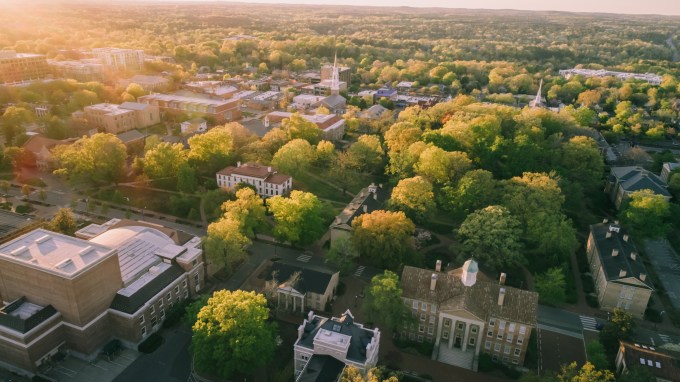| |
| |  Image Credits: Prasit photo / Getty Images | | The manufacturing industry is capital-intensive and slow-moving, but the COVID-19 pandemic has accelerated the pace of change when it comes to issues like automation, worker safety and strengthening supply chains. We reached out to four venture capitalists who are active investors in the space to ask where they’re focusing their time and attention in this uncertain environment: - Lior Susan, founder and managing partner, Eclipse Ventures
- Ajay Agarwal, Bain Capital
- Greg Papadopoulos, venture partner, NEA
- Dayna Grayson, co-founder and general partner, Construct Capital
Have a great week, and thanks for reading Extra Crunch! Walter Thompson
Senior Editor, TechCrunch
@yourprotagonist Read more | | | |
| |  | | Verizon CEO Hans Vestberg is leading a company with 135,000 employees through one of the strangest periods in history most of us have ever lived through, and we have a few questions. Today at 6 p.m. GMT/2 p.m. ET/11 a.m. PT, he’ll join us for an Extra Crunch Live discussion where he’ll take questions from Jordan Crook and Danny Crichton about his short-term strategy and his long-term outlook. Extra Crunch Live discussions are open to the public, but only members get to ask questions, so sign up now. (Disclosure: Verizon is TechCrunch’s parent company.) Read more | | | |
| |
| |  | | Dear Sophie: My spouse's startup is transferring her to the U.S. to help set up an office there. Will I be able to go with her and work in the U.S.? How long will it take for me to get a work permit? How long will we be able to stay? — Hopeful in Hyderabad Read more | | | |
| |  | | Steve Case and Clara Sieg of Revolution joined us last week for an Extra Crunch Live discussion that reflected on the history of tech and examined some of the challenges facing the industry today. "I think it is important to take advantage of this time where you have people sitting around with more availability on their calendars and more willingness to engage," Sieg said. "The nice thing about removing some of the in-person components is there's a stronger focus on market opportunity, product and company, and the real metrics that [founders] can show,” she added. “Removing some of that person-to-person noise and just focusing on the business means that a lot of these biases are going to be overcome." Read more | | | |
| |  | | Much of the news from the world of apps continues to be dominated by COVID-19: Tinder recently dropped its geolocation restrictions to allow users to show their profiles to anyone in the world. Also: Fitbit launched a COVID-19 early detection study, the Apple/Google exposure-notification API was released, and iPhone’s Face ID now recognizes owners who are wearing masks. Read more | | | |
| |  Image Credits: Ryan Herron / Getty Images | | The latest in our series of future-looking discussions examined the prospects for college towns in a post-COVID-19 world: - Danny Crichton sees the death of college towns, and looks at whether remote tools can substitute for in-person connections when building a startup.
- Natasha Mascarenhas believes connecting with other students is critical for developing one's sense of self, and the decline of colleges will negatively impact students and their ability to trial and error their way to their first job.
- Alex Wilhelm looks at whether residential colleges are about to be disrupted — or whether tradition will prevail.
Read more | | | |
| |  Image Credits: University of Pennsylvania | | Devin Coldewey’s latest science column recaps some fascinating developments that sound more like science fiction: – Yale researchers tested dogs’ ability to accept commands from robots;
– A prosthetic vision study allowed blind people to “see” images traced on the palms of their hands;
– NASA has developed a new type of locomotion for wheeled robots. Read more | | | |
| |
| |
| |
| |
Post a Comment